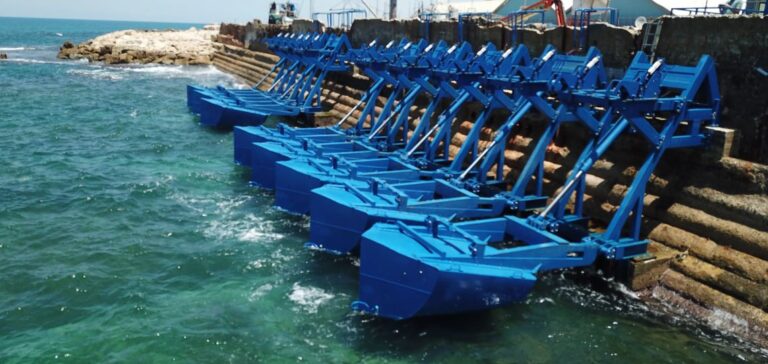Swedish-Israeli developer Eco Wave Power Global AB reported a 4.2% reduction in net loss for the first quarter of 2025, amounting to $505,000, compared to $527,000 a year earlier. This improvement was driven by a 97% increase in net financial income, which rose to $260,000, while operating expenses reached $765,000, up from $659,000 in 2024.
Accelerated rollout in the United States and Europe
The company confirmed it had obtained all necessary regulatory approvals to begin construction of its first U.S. wave energy project at the Port of Los Angeles. Revocable Permit 25-05, issued by the Port in March 2025, authorises construction and demonstration of its system at Berth 70. The floaters will be produced locally by California-based All-Ways Metal Inc., with installation scheduled for completion by the end of the second quarter.
In parallel, Eco Wave Power is advancing its first megawatt-scale project in Porto, Portugal, where a detailed Execution Plan has been submitted to the port authority Administração dos Portos do Douro, Leixões e Viana do Castelo, S.A. (APDL). Site preparation is underway, and local suppliers have been mobilised for initial works.
Strategic agreements in Asia
In February 2025, the company signed a Memorandum of Understanding with Bharat Petroleum Corporation Limited (BPCL), a public Indian company, to explore pilot projects in Mumbai. BPCL will handle regulatory processes, while Eco Wave Power will supply its technology. A formal purchase order is expected in the second quarter.
In Taiwan, Eco Wave Power signed an agreement with I-Ke International Ocean Energy Co. for local production of floaters and the purchase of a 100KW conversion unit. This first sale in the Taiwanese market includes on-site production and the expected acquisition of necessary permits by July 2025.
Operational stability in Israel and 2025 roadmap
The EWP-EDF One site in Jaffa, Israel, reported full operational uptime during Q1 2025, with average energy output equivalent to 13% of installed capacity. Peak output reached 40KW, confirming the scalability potential of the system. The company plans to optimise floater production and installation costs to support commercial rollout.
The creation of an advisory board also strengthens strategic governance. Hilary E. Ackermann, former Chief Risk Officer at Goldman Sachs Bank USA and board member at Vistra Energy, was appointed as the first member. Her expertise in risk management and sustainability will support the company’s global growth phase.






















